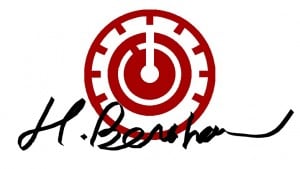Il vaut mieux hasarder de sauver un coupable que de condamner un innocent.
It is better to risk sparing a guilty person than to condemn an innocent one.
Voltaire
To terminate any potential speculation about my reasons for no longer contributing monthly articles to Press TV’s website, I have decided to make the following post explaining my actual reasons.

My thumbnail from Press TV, more or less
I continue to admire the work of the Iranian government-funded channel Press TV. My reasons for no longer contributing monthly op-eds there are personal and not political, and are connected with my career and oaths I have taken that are inappropriate to discuss in public via blog posts.
As a foreign government-funded outlet, Press TV is a less appropriate place for me to publish my opinions than this eminent space of mine, the L’Ordre blog, at Beliefnet. The degree of autonomy that I have as an author here, not subject to any editorial process, is liberating and more appropriate for my own purposes than a column at a particular news outlet associated with a particular government.
It is not that I hold anything against the Iranian government, indeed I still tune in to Press TV’s streams and I celebrate Islamic Republic of Iran Broadcasting (IRIB) efforts to amplify the voices of dissidents and targeted, maligned or marginalized thinkers and ethnic minorities in the morally and democratically stunted regimes of the Islamophobic West. However, I believe the Internet is a sufficient counterweight to hegemony in its own right, a kind of superpower. Hence, the same purpose of amplifying dissident voices in the West is adequately accomplished through the hub of existing Western-based dissident outlets, some of whom I have written for, albeit that in many cases they opportunistically cooperate and deal with foreign news agencies in order to amplify their message (who wouldn’t?).
I confess that I now believe that Western-based dissident outlets, as well as other predominantly Western circles that I am helping to strengthen in my own online dealings, present an opportunity for grand campaigns against injustice within the West that will not be apparently contingent on Russian, Iranian or other external blessing (which fuels wild speculations about foreign plots). Too often, journalists and bloggers in the pay of Russian or Iranian outlets are simply dismissed as propagandists, hacks or professional liars by more respected and richer professional liars of the day. Those who are most resilient against such accusations are people like Glenn Greenwald, who actually hasn’t worked for foreign channels and yet is one of the most prominent journalistic critics of US and Western foreign policy. By that same advice, I as a blogger should avoid being seen to work for foreign or non-Western organizations, as such avoidance in fact amplifies my own message and credibility.
Those who hurled the accusations that bloggers such as I were working for the Russians, the Iranians, the Chinese, the Martians, et cetera, will come to regret it. By driving me away from foreign outlets, they have only strengthened my own hand on the blogosphere. They might have been better advised to encourage their critics to associate themselves with foreign regimes and agents, rather than discouraging such association.
For some weeks now, I have been trying to depoliticize my trail on the Internet. As I did so, I began to realize that depoliticizing has its own merits that go beyond my mere career reasons to make such revisions. The bulk of commentary on the Internet is critical of all ideologies and states and it would be foolish to tie oneself to any one of them, as such association would only create avenues of vulnerability to what we call trolling.
For years, I associated my contributions to online media outlets, including those addressing scientific, cultural, ethical and technological subjects, with a form of online activism or hacktivism, as some have called it. However, I now believe that such terms as “hacktivism” are not appropriate in themselves because, for all its alleged faults as a breeding ground for fringe political opinions, the Internet is essentially apolitical and should remain thus. Those who engage in “hacktivism” are not fanatics driven by ideology but simply angered netizens. They could be any one of us, perhaps working for any regime, including the regimes they are attacking.
Groups that have emerged from the culture of the Internet, the most notable of which is the collective known as Anonymous, have no political agenda, no ideology, and no plan to govern any state. Ubiquity is the only characteristic that such groups claim to possess, and any loyal devotee of the “cause” of the Internet would realize that this, rather than any form of partisanship, is an essential cultural and social attribute of the Internet as an emerging technology.
So, to crush the conspiracy theories before they begin, I have not defected from supporting Iran. I still consider Iran to be a legitimate power and have no desire to harm them or undermine the dissident causes that they encourage sympathy for within the West. I simply do not write for them anymore, for my own professional reasons, although I encourage all to continue visiting their website presstv.ir.


